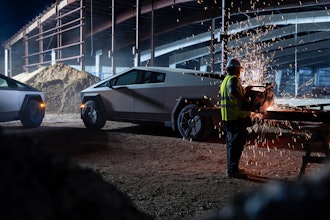By Joel Hans, Associate Editor, IMPO
Being from Wisconsin, I hear, in many ways, the rumble of Harley-Davidson. Whether it’s the motorcycles themselves, or the manufacturing plants in which they are built, it’s hard for a cheesehead to get too far away from the venerable hog.
Because of this, I also pay close attention to the hundreds of local Milwaukee and Tomahawk jobs that have recently been threatened by upper management's aims to streamline the struggling company. The current labor contract, which has been approved by multiple unions, cuts hundreds of jobs, freezes current pay, and replaces seasoned workers with “casual” hourly ones who earn half as much.
I understand both sides of the union debate. I’m not going to argue their merits or their deficiencies. What I’m wondering about is to what extent companies should be loyal to the workers who brought them to success and sustainability as a company.
All right, one might argue that Harley-Davidson is having a bit of trouble meeting that “profitability” standard, which I guess is why they’re seeking the job cuts and concessions in the first place.
Harley-Davidson’s CEO, Keith Wandell, has said, “We are on a course to build a competitive company for the future and a business that is sustainable long term. Nothing can get in the way of this objective.” It’s a hard line, and one that makes perfect sense for a business that has shareholders to keep happy. In truth, profitability is part of the “American way,” even if it leads to the little guys getting trampled on in the process. I can see where a 22-year veteran of the company would think that what corporate is doing is nothing less than a “downright attempt to crush the union.”
But does it always have to be this way? If Harley-Davidson wants to phase out unionized workers in their manufacturing plants, that is certainly their right to do so -- and in this economy, they’ll likely be able to find many people willing to take a non-unionized job at half the cost of a long-time employee. But is it right? Is it fair?
Without a doubt, some of these company veterans are the men and women who made Harley-Davidson the company it is today. Without them, the “hog” wouldn’t be a symbol known nationwide. Because of this, I can’t help but feel as though businesses are using the downtrodden economy as a convenient way to bleed their employees dry. They have all the leverage -- one would have to be immensely confident, if not a touch loony, to walk off a job over a pay freeze. Because of this, many companies aren’t hesitating to tighten the noose. It comes off as nothing more than a means to devalue their workers, which can be convenient even when the economy recovers, hence the pay freeze.
And I’m not even going to touch the issue of CEO (over)compensation -- I’ve dealt with that before.
I’m curious to know what readers think about this situation. Do you think forcing concessions on workers is just another consequence (albeit regretful) of the poor economy? Or should manufacturers do more to stand up for the shop floor employees who have worked hard to keep the company going in the first place?
We're also interested in hearing from you regarding unions. Some argue they're more important now than ever, particularly in situations such as those within the Harley-Davidson shakeup. The other side sees the failure of unions for precisely the same reasons. What are the role of unions in a very troubled economy?
Most importantly, should these Harley-Davidson workers start looking at Hondas instead?
Post your comments below, or send them to [email protected].






















